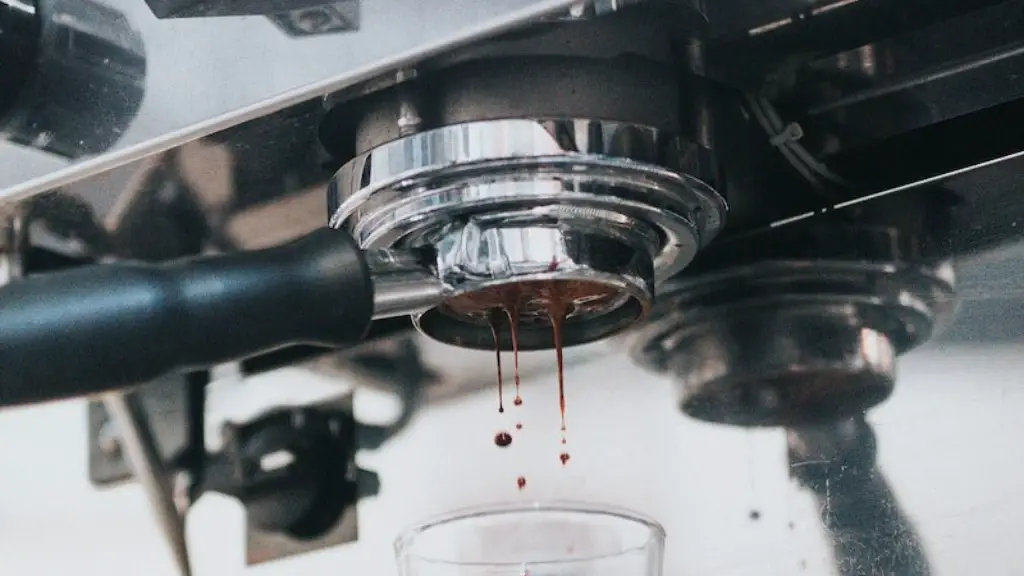Introduction
Coffee is one of the most popular drinks worldwide, and it is not surprising that many people are wondering if they can drink coffee while taking prescription medication such as Lexapro. Lexapro is an antidepressant drug that is used to treat depression and anxiety. It is important to note that Lexapro does have some potential interactions with other substances, including caffeine. Therefore, individuals taking Lexapro must be aware of how drinking coffee affects them in order to make an informed decision about their caffeine consumption. In this article, we will discuss the potential interactions between coffee and Lexapro, and how to determine if drinking coffee is safe for you. We will also provide some tips for individuals taking Lexapro and who regularly drink coffee.
Coffee and Lexapro Overview
Coffee is one of the most popular beverages in the world, with an estimated 400 million cups consumed on a daily basis. Coffee is known to have positive effects on mental alertness, as well as beneficial health effects. Lexapro, on the other hand, is a type of antidepressant drug known as a selective serotonin reuptake inhibitor (SSRI). It is used to treat depression and anxiety, and is prescribed by a healthcare professional. It is important to note the potential interactions between coffee and Lexapro, as they could have an effect on the effectiveness of the drug.
Potential Interactions Between Coffee and Lexapro
As coffee is a stimulant, it can increase the activity of certain neurotransmitters in the brain, including serotonin. Lexapro works by increasing serotonin levels in the brain, so when the two are combined, it can create an over-stimulated effect on the neurotransmitters. This can cause adverse side effects, such as anxiety and restlessness. In addition, coffee consumption can lead to insomnia and increased heart rate, which can be further exacerbated by combining it with Lexapro. Therefore, individuals taking Lexapro should be aware of the potential interactions between coffee and the drug.
How to Determine if Drinking Coffee is Safe
Before making the decision to drink coffee while taking Lexapro, individuals should talk to their doctor and pharmacist to determine if it is safe. This is because everyone is different, and what might be safe for one person might not be for another. In addition, individuals should consider the amount of coffee they are drinking and how often. If an individual normally drinks multiple cups of coffee a day, it might be best to reduce the amount slowly over time or switch to decaffeinated coffee instead.
Tips for Those Taking Lexapro and Drinking Coffee
Individuals who are taking Lexapro and who are also drinking coffee should ensure they are following the advice of their healthcare professional and keeping track of any side effects they may be experiencing. They should also be aware of their caffeine intake, as too much caffeine can lead to increased anxiety and insomnia. Additionally, it is important to note that coffee can interfere with the absorption of certain medications, so it is important to discuss this with your doctor.
Understanding the Effects of Caffeine and Lexapro
Caffeine is a stimulant drug, and it can have both positive and negative effects when mixed with certain medications. It is important to note that if too much caffeine is consumed, it can cause increased anxiety, irritability, and restlessness. On the other hand, if too little caffeine is consumed, it can make an individual feel tired and slow. Additionally, some individuals might find that the combination of Lexapro and caffeine can cause drowsiness. It is important to find a balance when taking Lexapro and drinking coffee in order to make sure there are no adverse effects.
Finding Alternatives to Coffee
If an individual is taking Lexapro and drinking coffee, it is important to make sure they are getting enough sleep and not overdoing it with the caffeine. For individuals who are worried about the potential interactions, there are some alternatives they can try. Decaffeinated coffee is a good option, as it has some of the benefits of regular coffee but without the potential side effects. Additionally, individuals can try other types of drinks, such as herbal tea, which can provide some of the same benefits as coffee without the risks of interactions with Lexapro.
Monitoring Side Effects
Finally, individuals taking Lexapro and drinking coffee should be aware of any side effects they may be experiencing and make sure to speak to their healthcare provider if they are concerned. Common side effects of Lexapro include fatigue, dizziness, headaches, nausea, and constipation. If individuals are experiencing any of these symptoms, they should discuss them with their healthcare provider and consider reducing their caffeine intake accordingly.
Gaining Expert Guidance
When it comes to making the decision to drink coffee while taking Lexapro, it is always best to get expert advice from your healthcare provider. They can provide specific guidance for your individual case and answer any questions you may have. It is important to try to keep an open dialogue with healthcare providers in order to ensure that any potential interactions are monitored.
Personalizing Your Coffee Intake
When taking Lexapro and drinking coffee, it is important to find a balance between the two in order to make sure there are no adverse effects. This means understanding the potential interactions and monitoring for side effects. Additionally, individuals should be aware of the amount and frequency of their coffee intake and try to adjust it accordingly. For example, if an individual normally drinks multiple cups a day, they might want to start reducing the amount until they can find a comfortable balance.
Making Lifestyle Changes
If an individual is taking Lexapro and needing a caffeine boost, they might also want to consider making some lifestyle changes in order to improve the effectiveness of the drug. This includes things like increasing activity, practicing relaxation techniques, getting enough sleep, and reducing stress levels. All of these things can help to reduce the symptoms of depression and anxiety, and when combined with Lexapro, can have positive effects on an individual’s mental health.
Conclusion
In conclusion, coffee and Lexapro can have potential interactions which can lead to adverse side effects. Therefore, it is important to talk to a healthcare provider to determine if drinking coffee is safe for you. Additionally, individuals should keep track of their caffeine intake and make sure to monitor for any side effects. With the right guidance and lifestyle changes, individuals taking Lexapro can find a balance between caffeine consumption and the effectiveness of the drug.



